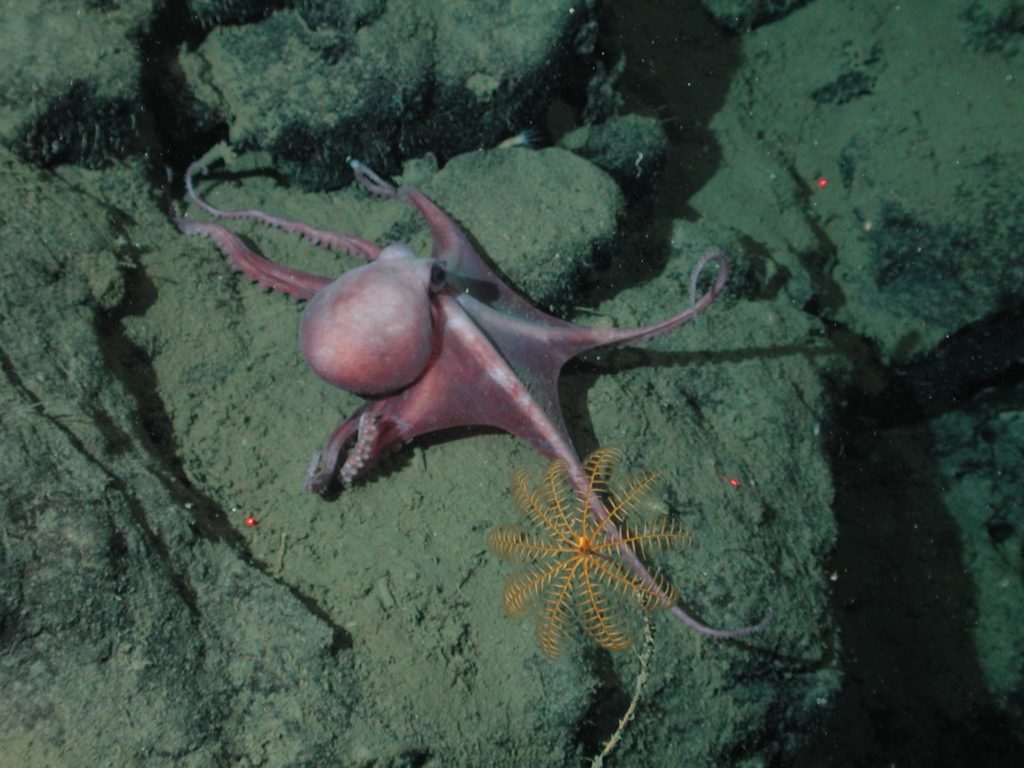Deep-sea octopus has longest-known egg-brooding period
Deep-sea octopus protects, nourishes eggs for 53 months
Octopuses typically have a single reproductive period during their life, where the females protect and take care of their fertilized eggs until they hatch. Shallow-water octopuses typically care for their eggs for 1 to 3 months, but little is known about the brooding of deep-sea species. Using a remotely operated vehicle to monitor the Monterey Submarine Canyon off of central California, the authors of this study discovered a deep-sea octopus in 2007 on the seafloor at around 1400 m deep. When they returned in May 2007, the same octopus was sighted up on the rock and guarding a clutch of attached eggs. The scientists returned to the site 18 times over 53 months to monitor egg development and measure the length of her brooding period from its inception.
Each time the researchers returned, they found the same octopus clinging to the vertical rock face, arms covering her eggs. Continuous growth of the eggs led scientists to conclude that it was the same clutch throughout. About 160 eggs hatched sometime between September and October 2011, 53 months (almost 4.5 years) after the initial May 2007 sighting. At 53 months, this is by far the longest egg-brooding period ever reported for any animal species. Since these results are specific to the observation of one octopus brooding period, the authors suggest that these results may not be unique to all deep-sea species. When compared with the brooding of well-studied shallow-water species, these results indicate how little we know about the deep-sea species and the need for further studies.
Bruce Robison added, “These surprising results emphasize the importance of parental care in producing well-developed offspring that can cope with the rigors of the deep-sea habitat. Because the brooding period is temperature dependent, the results also provide a caution about the potential consequences of our changing climate.”
[embedvideo id=”lFCQltYMLQk” website=”youtube”]


